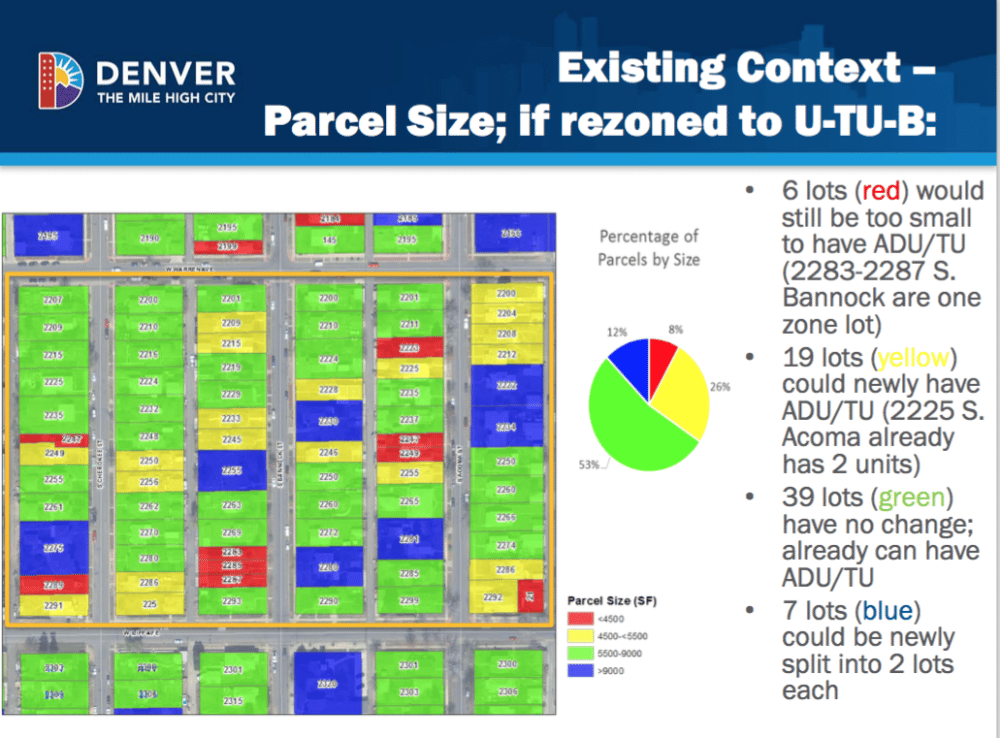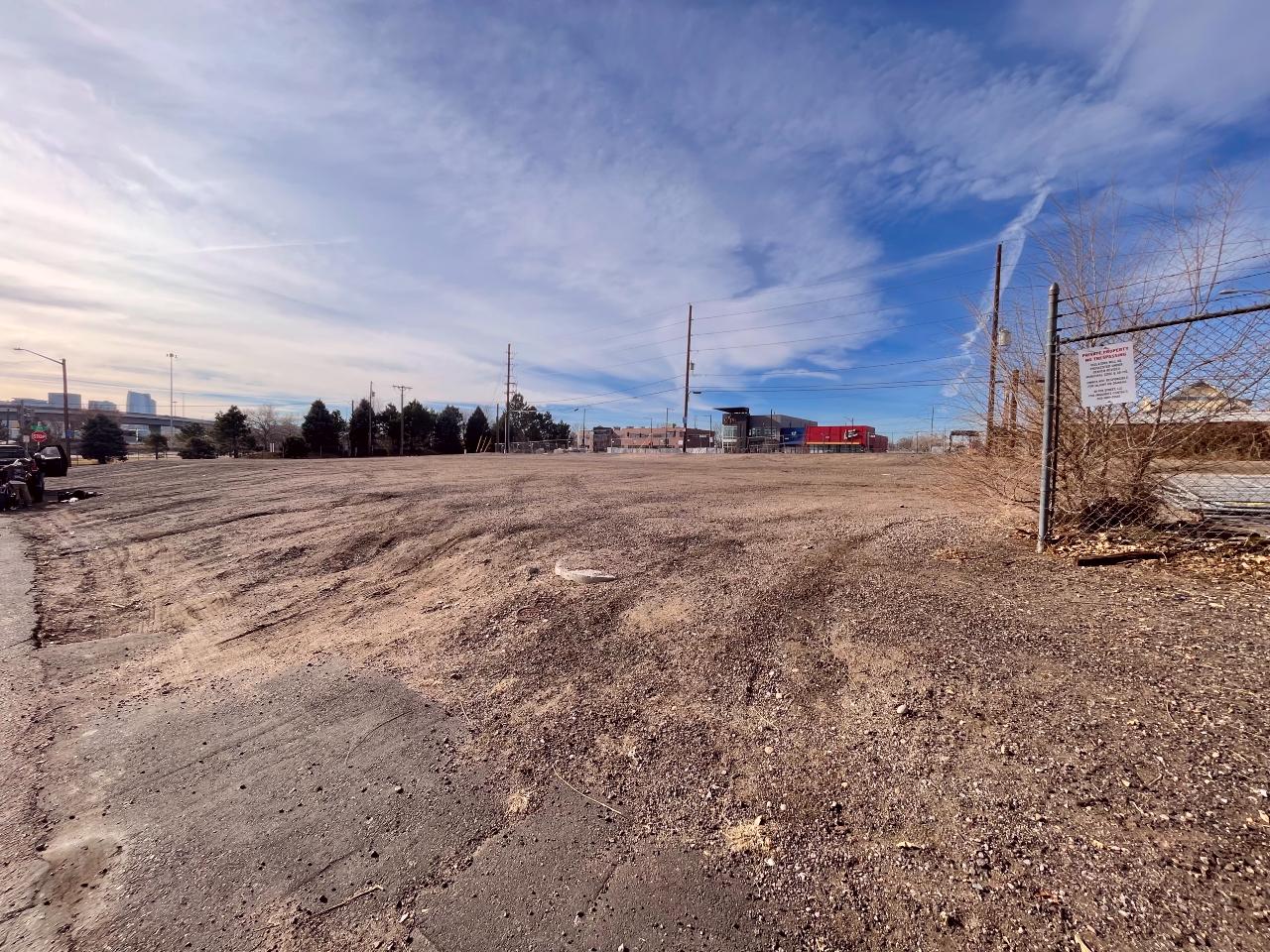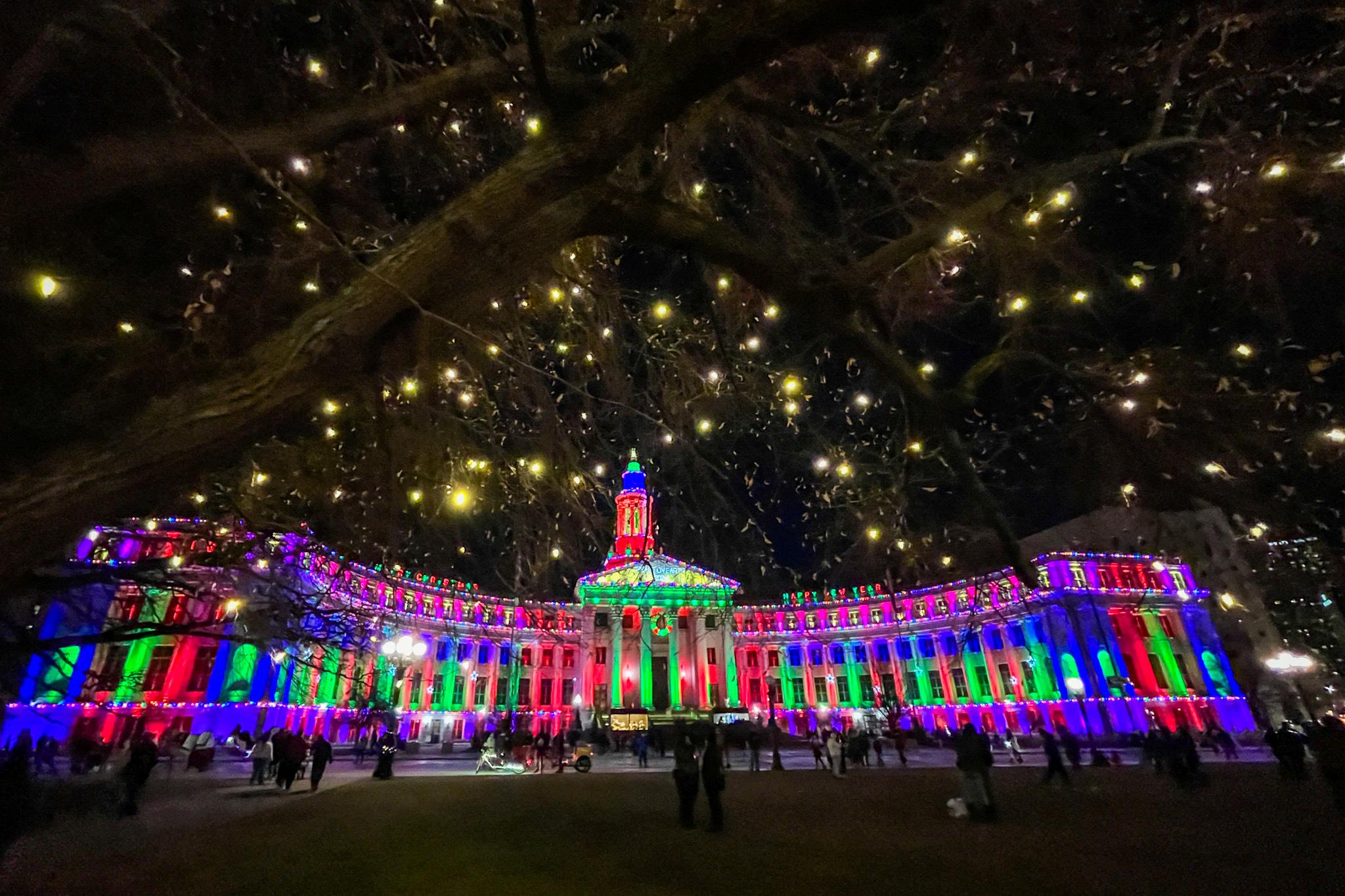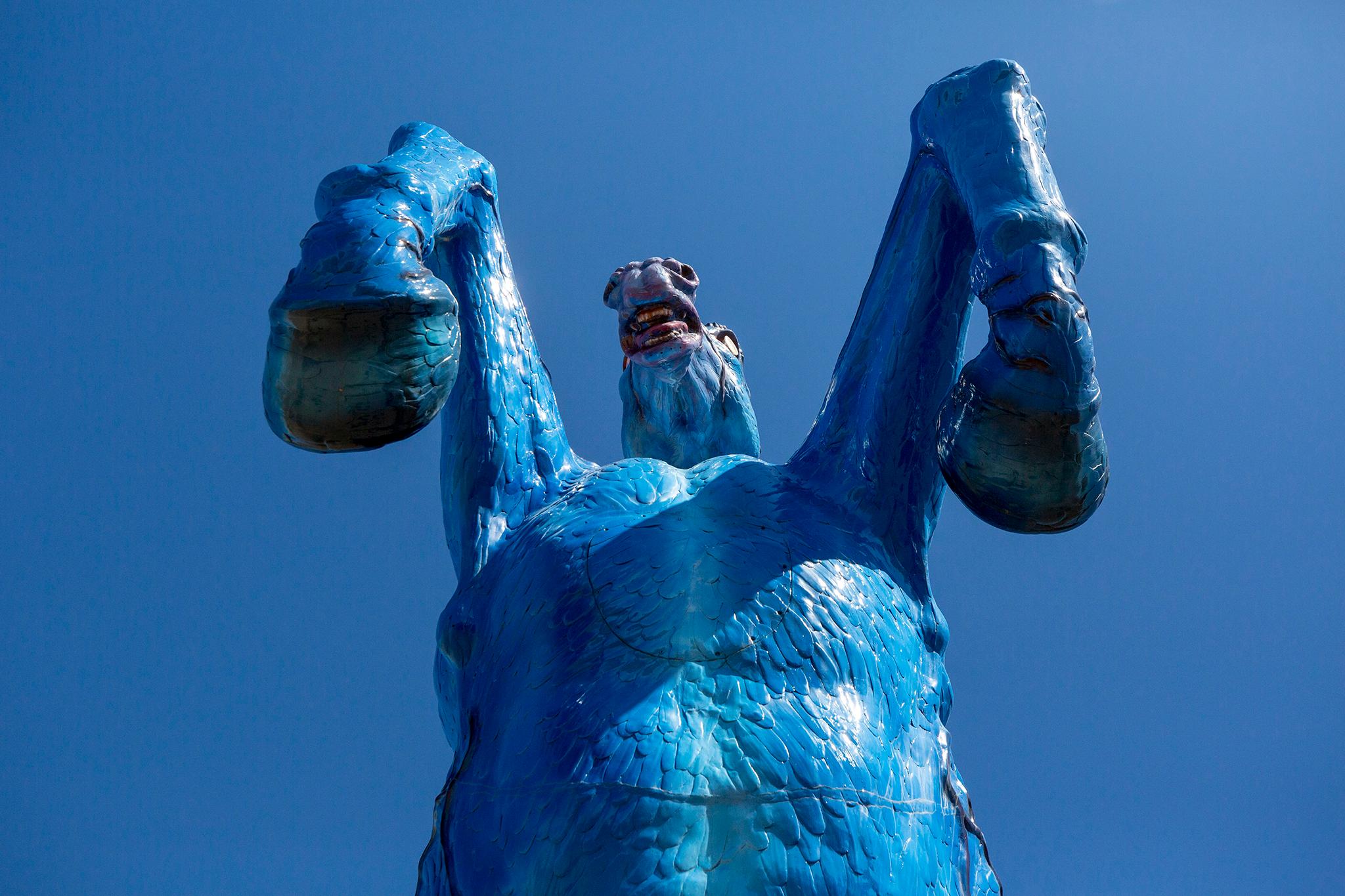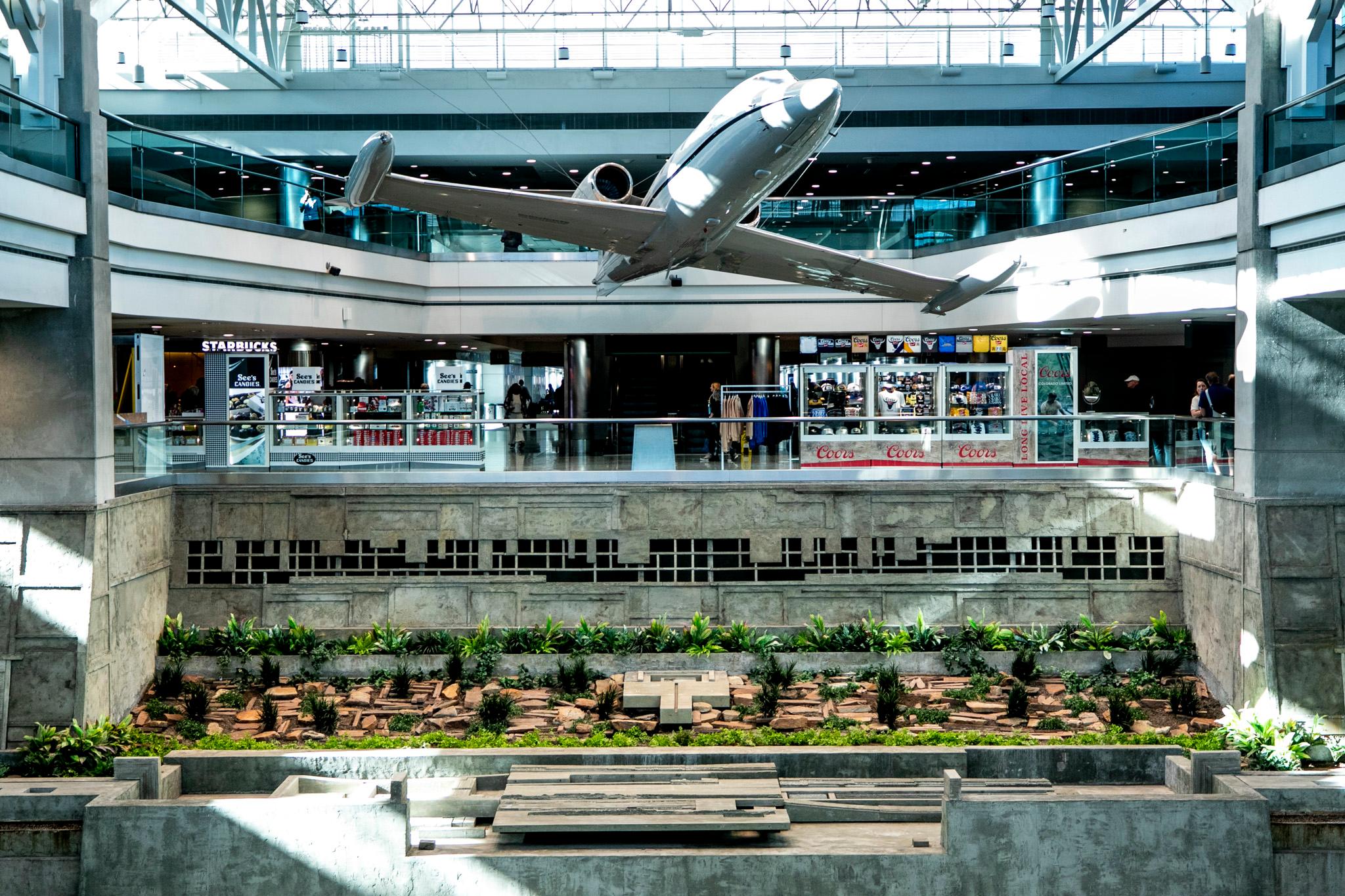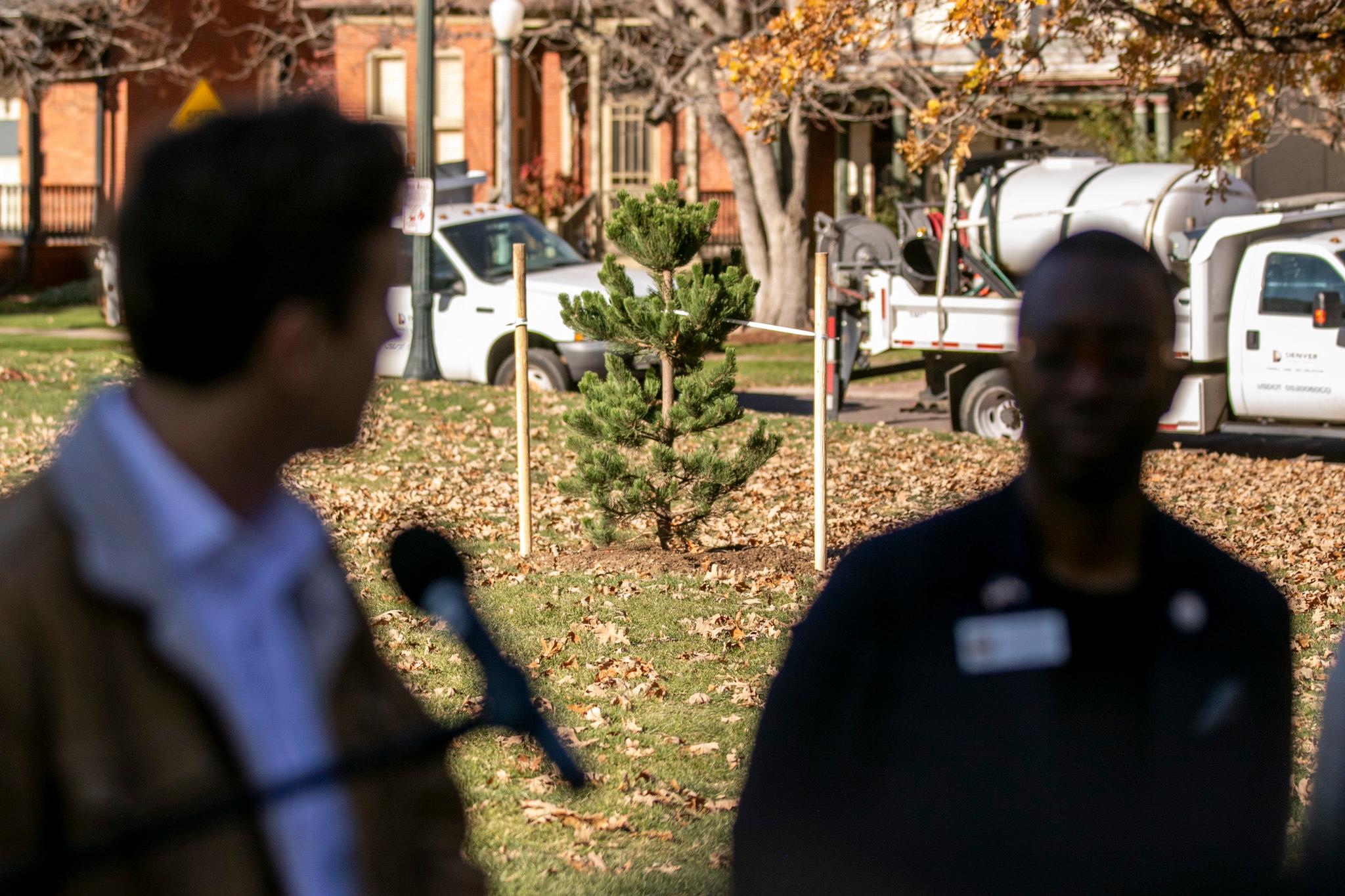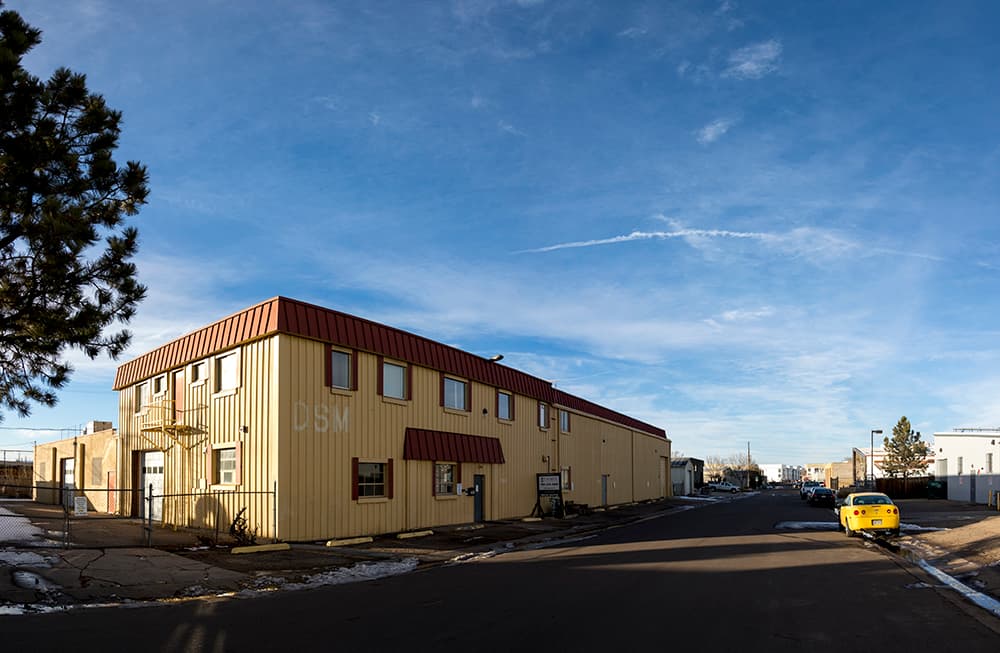
Update: A rezoning for this project was approved in a 10-0 vote by the Denver City Council on June 11.
A development company has released new details of its plan to build an eight-floor tower, by far the tallest in the area, in an industrial stretch of the Overland neighborhood near a rail station.
Meanwhile, a separate proposal would open the door for the potential construction of dozens of new duplexes in a residential section of Overland.
The tower:
LCP Development wants to build a mixed-use residential building at 2065 South Cherokee Street. It would include 136 market-rate apartments, about 5,000 square feet, and a three-level parking podium with 146 spots.
City plans say that the lot is appropriate for eight-floor development, but the company needs the Denver City Council to approve a rezoning first. The site is currently a light-industrial property and used to be home to a sheet-metal manufacturer, as we reported earlier.
If approved, construction could start as early as this summer.
Evans Station, the rail stop that stands a quarter-mile away, is the "main attractor to the site," according to Beau Breck, an associate at LCP.
"We hope we can contribute to increased transit patronage and really bringing up the neighborhood," he said. He pointed to Declaration Brewing, just to the north, as a promising sign for the area by the station.
"Declaration has already planted their flag in the neighborhood," Breck said.
LCP recently opposed another group's request for a rezoning.
Urban Peak wanted to go to five floors as it rebuilds its new youth homeless shelter and center. That site is about 0.6 miles north, outside of the official Evans Station area.
LCP reps argued that Urban Peak should have been limited to three floors, the same height as another LCP project in that area.
"I think five (floors) at this point in time doesn’t necessarily feel contextually appropriate," Breck said, referring to the area around Urban Peak's building.
Ultimately, the nonprofit got its rezoning, which could inspire other developers to pursue higher-density development farther from the station. "This is an area (where) Denver has said they support five-story projects. We may very well see certain buildings get to that level of massing."
All this development will be near a planned pedestrian bridge that will run from Jewell Avenue and across the railway, landing near the southeast edge of Overland Golf Course. The $13 million bridge project is funded by the recent GO bonds.
Meanwhile, in the neighborhood:
Numerous landowners along South Bannock Street in Overland have signed onto a rezoning request that could allow them to build duplexes on their properties.
The request covers about 70 lots, changing from "TU-C" to "TU-B." Currently, the rules for the area allow a duplex on any lot larger than 6,000 square feet. The change would shrink that to 4,500 square feet
That could make a big difference for the neighborhood. Nineteen of the lots would be newly eligible for duplex development. Seven lots would be newly eligible to be subdivided, allowing two duplexes on each.
That wouldn't mean, by any stretch, that all those duplexes would get built. In fact, it doesn't necessarily have the support of everyone within the area. Getting the rezoning requires the approval of 51 percent of the affected landowners, plus the approval of the city council.
Jon Roberts, a landowner pushing the proposal, said that the idea was to allow people to fit more units onto their residential lots. His long-term goal is to build "attainable housing," he said. "I'm trying to build the most affordable homes in Denver I possibly can."
He owns one lot within the 10-acre area. The change would allow him to build four residential units on that one lot. Instead of two units, he could build four. Instead of two $750,000 units, he could sell four smaller $450,000 units- not truly affordable, he said, but lower than average.
The proposed rezoning is bounded to the north by West Warren Avenue, to the south by West Iliff Avenue, by the alley west of Cherokee Street and by the alley east of South Acoma Street.
Roberts described it as a rare, relatively affordable area. "It’s kind of some of the last frontier in the city and county of Denver," he said.
Thoughts? Email.
